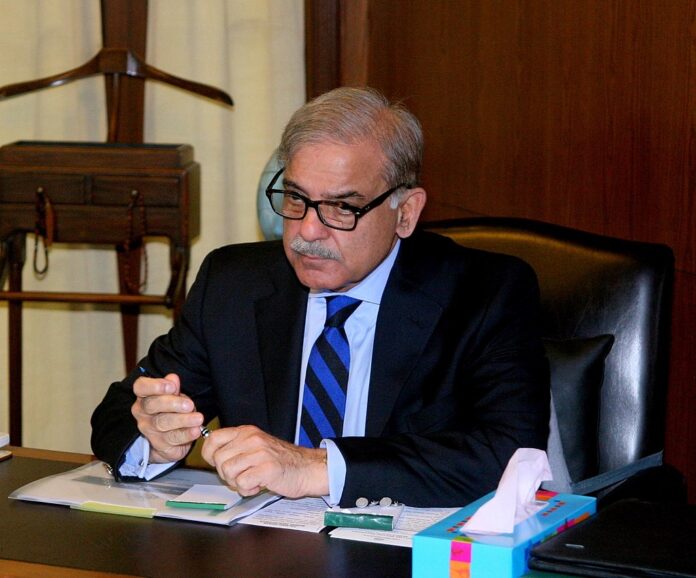Prime Minister Shahbaz Sharif seeks economic stability as IMF grants immediate release
In a significant move to aid Pakistan‘s struggling economy, the International Monetary Fund (IMF) has approved the disbursement of a $1.1 billion loan tranche following a crucial meeting of the lender’s executive board. The decision comes as economists emphasize the need for substantial reforms to reduce the country’s reliance on foreign financial assistance.
The approval, announced late Monday night by Pakistan’s Ministry of Finance and the IMF, completes a total loan of $3 billion agreed upon under a deal signed last year. However, the IMF’s decision was accompanied by a clear message emphasizing the necessity for Pakistan to continue its policy and reform efforts.
Embed from Getty Images“To move Pakistan from stabilization to a strong and sustainable recovery the authorities need to continue their policy and reform efforts, including strict adherence to fiscal targets while protecting the vulnerable; a market-determined exchange rate to absorb external shocks; and broadening of structural reforms to support stronger and more inclusive growth,” the IMF stated.
The approval followed a meeting between Pakistani Prime Minister Shehbaz Sharif and IMF Managing Director Kristalina Georgieva, held on the sidelines of the World Economic Forum meeting in Riyadh on Sunday. Sharif’s government had sought a new IMF deal after the expiration of the current $3 billion standby arrangement (SBA) with the global lender on April 11.
Hours after the IMF approved the funding, Sharif expressed optimism about the economic stability it would bring to Pakistan. He highlighted the importance of the IMF bailout in preventing the country from defaulting.
Pakistan has been grappling with a severe economic crisis for over two years, with inflation peaking at nearly 38 percent and foreign currency reserves dropping to $3 billion in February 2023, enough to cover less than five weeks of imports. However, Sharif managed to avert a sovereign default last June by securing the IMF bailout, which boosted forex reserves to almost $8 billion, according to recent central bank data.
Khaqan Najeeb, a former adviser to the Finance Ministry, noted that Pakistan’s economy has shown signs of improvement over the past nine months, with increased foreign reserves and a gradual reduction in inflation. However, he cautioned that growth is expected to remain slow, hovering around 2 percent.
On the other hand, leading economist Kaiser Bengali raised concerns about the sustainability of current policies, stressing the need for more structural reforms. Bengali warned that the perceived stability in Pakistan’s economy is merely a temporary situation driven by the influx of loans.
Pakistan’s external debt obligations currently exceed $130 billion, with economist Hina Shaikh cautioning that the country’s reliance on debt to address fiscal deficits may worsen inflation. She emphasized the importance of implementing reforms to boost exports, manufacturing, and tax revenues.
Both Najeeb and Bengali underscored the importance of shifting focus towards productivity and investment to achieve sustainable growth. However, Bengali cautioned that the IMF might be reluctant to provide large sums of money indefinitely, especially if Pakistan’s financial situation continues to deteriorate
